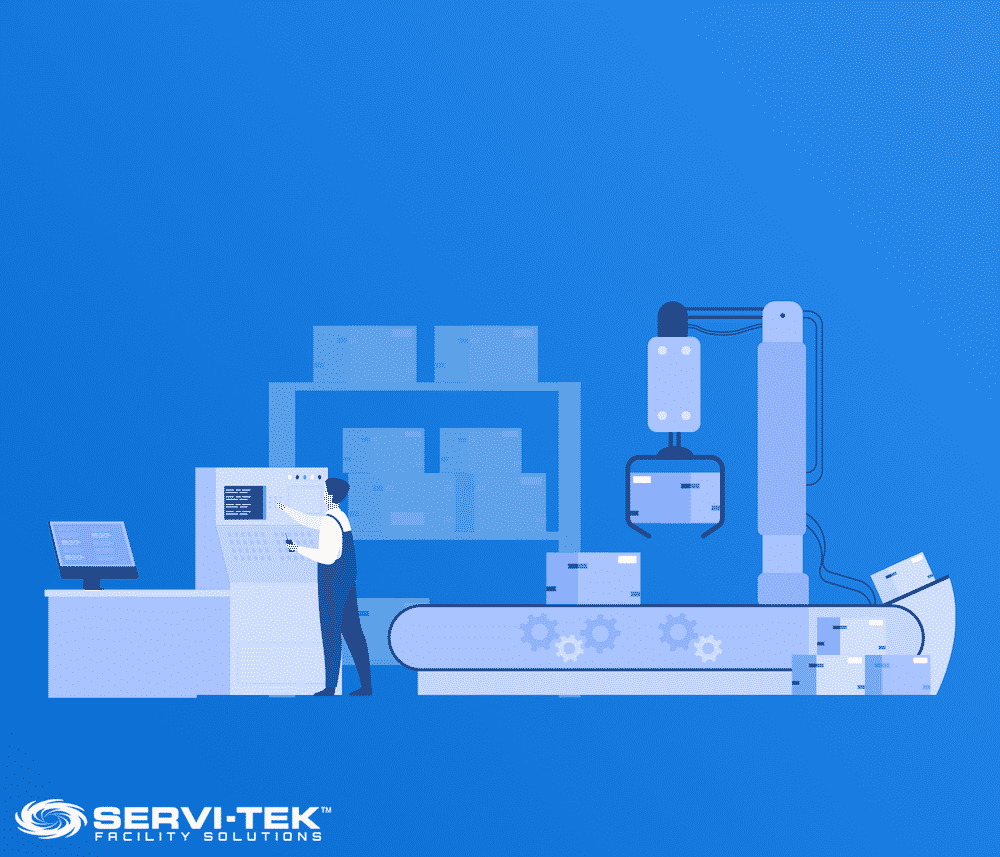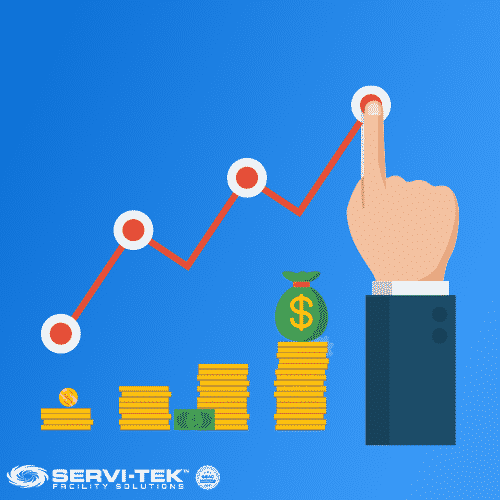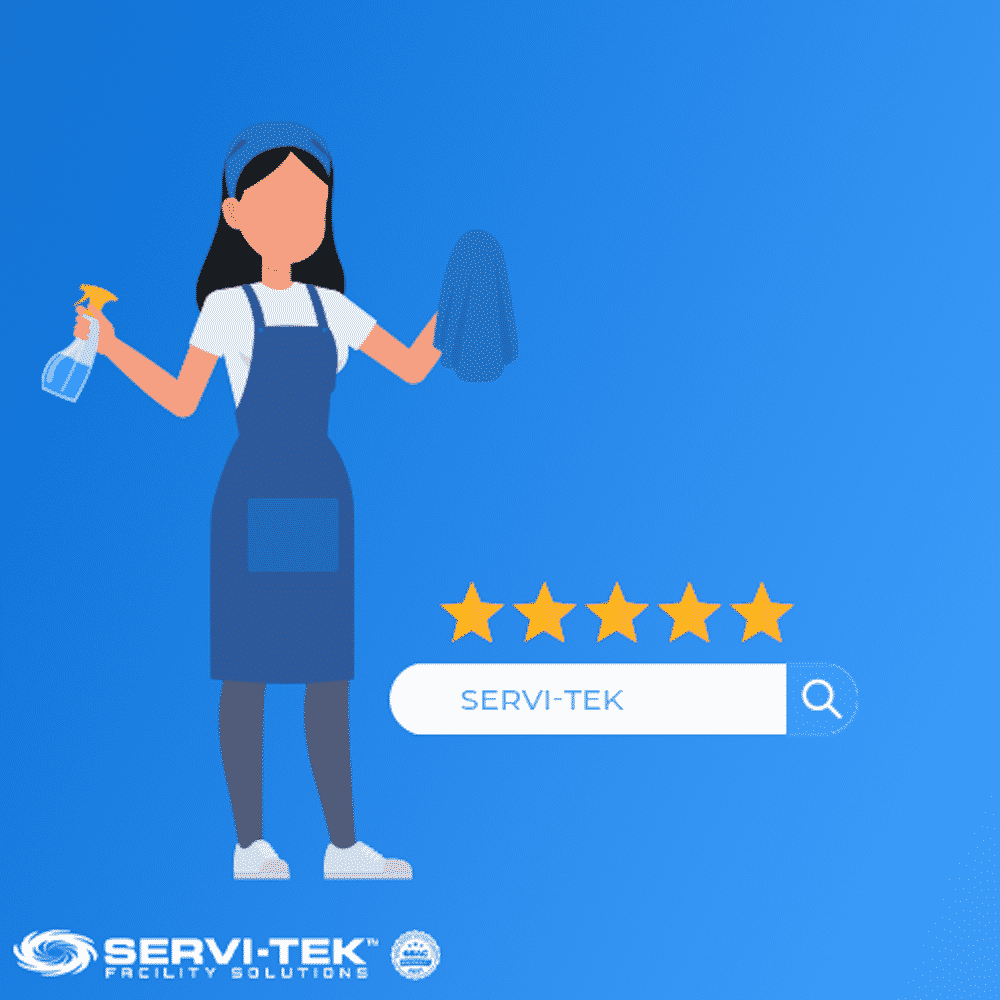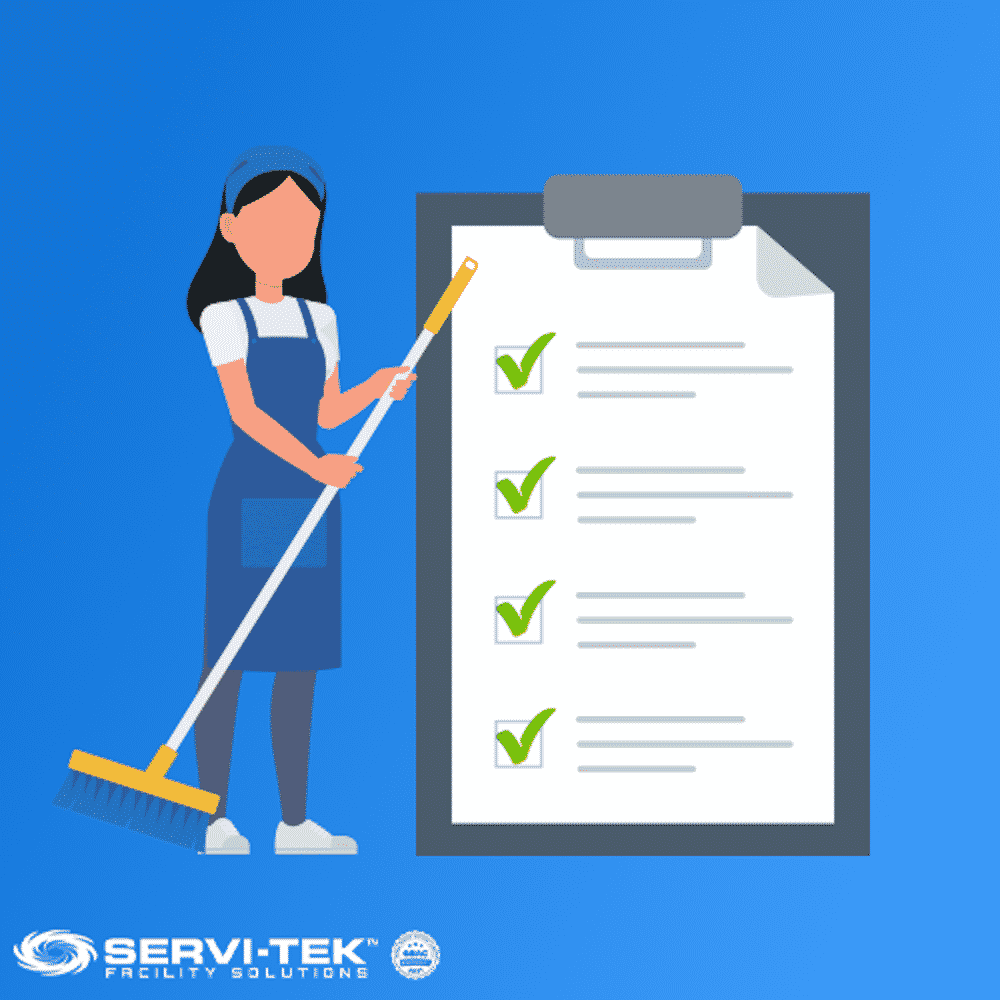Effective Industrial Cleaning Services

A report from Cleaning & Maintenance Management (CMM) magazine shows that the commercial cleaning, janitorial, and maintenance markets are surging.
Much of this demand is attributed to workplace occupancy moving closer to pre-pandemic levels, with new standards and priorities.
Businesses of all sizes are adopting enhanced programs geared toward limiting pathogens, dust, dirt, and grime.
Further evidence of this trend is supported by the widespread demand for employees in the cleaning, custodial, and maintenance sectors. Local employment agencies claim that job postings for cleaning positions have increased by more than 300%.
One of the areas of the U.S. economy that appears to be poised for growth is the commercial real estate industry sector.
This broadening submarket of buildings and facilities will require operational services, including janitorial cleaning.
What Is Industrial Cleaning?

When used by an economist, “industries” describe businesses involved in supplying or producing goods or services.
Common examples might include industries such as agriculture, manufacturing, or service.
Traditionally, industrial workplaces were manufacturing operations such as assembly line-style factories that produce cars.
We have also associated industrial workers as employees working in some aspect of heavy industry.
Industrial operations today may describe construction, logistics, mining, mineral or resource extraction, or operations that create or change materials into goods.
Some of the common activities these companies perform often include handling hazardous materials, inspecting, maintenance, and repair.
Industrial cleaning providers may work with high-pressure cleaning equipment and could encounter tasks that require some physical strength.
These operations typically train their employees to troubleshoot, use various tools and equipment properly, and extensively review safety procedures.
Industrial cleaning is typically conducted in facilities operating in manufacturing, storage or warehousing, or utility operations. Industrial facilities tend to generate dust, dirt, grease, and grime that can harm components, equipment, and tools.
Any harmful buildup of substances can impair operations and can require regular applications of chemical solvents or degreasing agents.
Select commercial cleaning companies may offer or specialize in performing any janitorial activity in industrial environments.
These teams of professionals should have an understanding of what is needed to operate in this setting and are appropriately equipped. Companies that perform industrial cleaning services also recognize the critical importance of safety.
The Importance of Safety
One of the common safety concerns in industrial environments is slip and fall accidents or falls from heights.
In many manufacturing or warehousing environments, individuals could walk across a slippery floor due to a leaky machine or roof.
The same applies to those walking on upper areas or working atop equipment performing maintenance.
The best safety practices will generally result from a systematic training program and ensuring staff has the proper safety equipment.
Failures in safety often result in injuries, which then translate to increases in worker’s compensation and potential civil liability.
Mitigation of wet or slippery surfaces should be a high priority for cleaning services.
Personal Protective Equipment
Failing to wear PPE is among the most common mistakes made by those cleaning in industrial settings.
Proper protection typically is for the eyes and face, head, hands, and feet.
Examples might include facial masks and shields, goggles, gloves, durable and slip-resistant footwear.
Personal protective equipment may also protect individuals from harmful bacteria and other pathogens.
Cleaning staff should always utilize proper PPE during the course of their duties.
How to Protect Your Employees
Knowledge through education and training is among the best means of protecting workers.
Each staff member should be made aware of the primary risks that exist in their particular environment.
They must also be instructed on how to properly react when accidents happen, including reporting workplace injuries.
Hazardous Waste
In industrial activity, wastes may be in the form of a solid, liquid, or gas that is being disposed of.
Waste is a commonly generated byproduct of manufacturing processes.
The EPA has determined that many industrial processes can generate hazardous waste, such as the following:
- Heavy construction: May create used oil and asphalt waste, which generally is now recyclable
- Petroleum solvent plants: Spent solvent must be sent for treatment to ensure safe disposal
- Equipment repair: Degreasing, rust removal, and painting activities may generate toxic or ignitable waste and solvents
- Textile manufacturing: May create hydrogen peroxide, sodium silicate, and organic stabilizer
Benefits Of A Professional Cleaning Company

Industrial firms and facility managers can derive a variety of benefits from hiring a qualified commercial contract cleaning company.
One key benefit is that the cleaning will likely produce excellent quality results because they specialize in this type of work.
The team of professionals completing the work should be well-trained and properly equipped to clean thoroughly.
Using a third-party cleaning company should allow the management and staff to remain better focused on the primary goals.
For example, those using in-house staff to perform cleaning duties require someone to handle recruitment, training, and supervising.
Some facility management professionals that make a comprehensive assessment of costs often are surprised to find they are also saving money.
Using a professional cleaning company also reduces the need to purchase, stock, and maintain cleaning supplies and equipment.
Many managers find that transitioning away from responsibility for supplies and equipment increases efficiency and lowers costs.
The commercial cleaning company is likely positioned to procure these items at lower prices through large purchases and industry relationships.
How to Select a Cleaning Company

One potential means of locating an experienced industrial cleaning company involves using the industry trade associations and certification groups.
For example, the Worldwide Cleaning Industry Association (ISSA) and the International Janitorial Cleaning Services Association (IJCSA) are two such resources.
The IJCSA website has a Find Cleaning Service search tool for identifying service providers that operate in your region.
Another option is to make contact with colleagues in your industry or those working in similar sectors.
Consider asking those in any business groups or associations that you are a part of.
Other options include using your social network, local chamber of commerce, and conducting online searches.
The process of choosing a cleaning company should begin with conducting your search for potential options and contacting them.
Consider speaking with them over the phone and then set up an onsite meeting to allow them to view the facility to create an estimate.
You should be prepared for any meeting with their representative with a set of questions to ask.
While the company may give you some initial “rough” pricing estimates, you should ultimately obtain a detailed written estimate.
This document should contain the scope of work, and timing details, pricing, and possible additional services.
Some cleaning companies have the flexibility to assist with special events such as helping with tradeshow setup and cleaning.
Be sure to confirm that the organization is properly registered and insured to protect against potential liability.
Inquire about how the company trains its staff and about the experience they have working in facilities similar to yours, as well as their management oversight structure.
Significantly, also ascertain their commitment to Client service, along with specifics. Keep in mind that choosing a company because they offer the lowest price is generally discouraged.
What to Look For in an Industrial Cleaning Service

The key to choosing a good industrial cleaning service is being well-prepared.
You should determine what your needs are, budgetary parameters and identify the best option for the job.
Be sure to remain diligent in checking references and other basics.
Ask about the background of the company to get a better understanding such as regarding their quality standards.
Does the company have some long-term employees or are the majority new due to staff turnover?
Consider asking about the anticipated response time when customer service issues or questions arise.
Is the company available to provide cleaning services at the times you need the work performed?
For example, if you will require after-hours cleaning or cleaning over the weekend days.
Ask them about the billing process, payment methods, and whether any contract term applies to the agreement.
Perhaps you will prefer to choose a company that uses eco-friendly cleaning products and methods?
The commercial cleaning market today is increasingly focused on issues of safety and environmental protection.
Cleaning in an industrial environment generally poses greater challenges compared to an office or retail setting.
Part of the challenge stems from stressful conditions such as excessive heat, noise, and proximity to machinery.
Some of the key tasks are likely to involve floor care, sanitation, and possibly operating in a fast-paced setting.
The staff also must be knowledgeable about the potential interactions that could be problematic between the cleaning supplies and other substances and materials.
Look For Signs of Experience
As you speak with several prospective industrial cleaning companies you should begin to recognize those with experience.
These individuals are more likely to ask questions as they tour your site because of past challenges they have encountered or possessing ideas for enhanced efficiency and effectiveness.
Their level of experience should also become apparent when inquiring about the equipment they think is best for certain tasks.
Check References
Be sure to ask the organization for some references who can attest to the quality of their work.
Keep in mind that they are likely to provide you with contacts that they know will speak highly of them.
Making this effort is recommended, as someone who does a really bad job might not have many satisfied customers.
Get Your Questions Answered
You should always feel comfortable asking them questions if you are unaware of something.
Making assumptions can result in failing to meet expectations and cause frustration.
Be Aware of the Chemicals They Use
Ensure that the organization operates responsibly by choosing cleaning agents that are effective and appropriate for the task.
Request specifics on the manufacturers of the cleaning chemicals and obtain tech specifications and Material Data Sheets (MDS).
Disinfectants
Disinfectants are designed to eradicate pathogens and other harmful organisms. One common class is germicides, which are used primarily on hard surfaces to eliminate germs.
Some disinfectants also serve as a cleaning agent to remove dirt and grime.
Equipment and Products
Equipment used in industrial settings is typically critical to overall production and must be properly cleaned and maintained.
Cleaning in an industrial setting is often dirty and demanding work because of the nature of these operations.
Safety risks will likely exist stemming from heavy equipment, excessive noise, and the potential exposure to lubricants, paints, and shavings.
In many cases, these environments generate harmful airborne dust or noxious vapors and cleaners may need to work among active production workers.
Best In Class Industrial Cleaning Services
The facility specialists at Servi-Tek Facility Solutions have many years of experience in delivering results for clients operating in industrial environments.
Our team of trained technicians provides customized industry cleaning and maintenance services using the latest products, equipment, and techniques.
We have a deep commitment to protecting facility staff and equipment, along with our valued employees, while possessing an unparalleled customer service culture.
Our successful operational strategies extend beyond creating a sparkling clean atmosphere and achieve goals including reducing waste and heightening efficiency.
Our platform includes proprietary software, Servi-Trak, which includes Work Order and self-Inspection modules.
We encourage you to contact our office today for a consultation.




